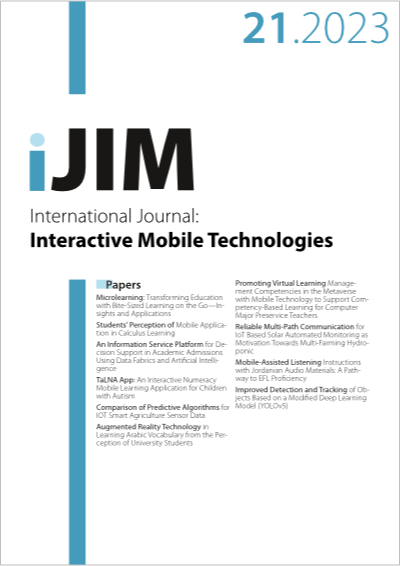Microlearning: Transforming Education with Bite-Sized Learning on the Go—Insights and Applications
DOI:
https://doi.org/10.3991/ijim.v17i21.42951Keywords:
microlearning, bite-sized learning on the go, learning transformation, digital educational trends, bibliometricAbstract
This research delves into microlearning, emphasizing its potential as a transformative tool in the digital age. It extends the theoretical foundations of microlearning, investigates evolving trends, provides practical examples, and discusses the implications associated with education. This is not only to contribute to the growing momentum of microlearning research but also to pave the way for future advancements. The study focuses on Scopus-indexed publications using a systematic review aligned with PRISMA (Preferred Reporting Items for Systematic Reviews and Meta-Analyses) guidelines and combined with bibliometric analysis. According to the analysis, there has been a noticeable increase in publications related to microlearning since 2015, highlighting a growing interest and contributions from scholars worldwide. The findings corroborate that microlearning is not just about providing learning material in small, easily digestible portions. Crucially, microlearning goes beyond the delivery of bite-sized content. Its flourishing research trajectory underscores its significance, especially for Generation Z and succeeding digitally native generations who are accustomed to smartphones, the Internet, and digital information. Hopefully, these findings offer valuable insights and serve as a reference for the education, government, business, and academic sectors to promote, design, and implement microlearning.
Downloads
Published
How to Cite
Issue
Section
License
Copyright (c) 2023 Agariadne Dwinggo Samala, Ljubisa Bojic, Derya Bekiroğlu, Ronal Watrianthos, Yeka Hendriyani

This work is licensed under a Creative Commons Attribution 4.0 International License.



